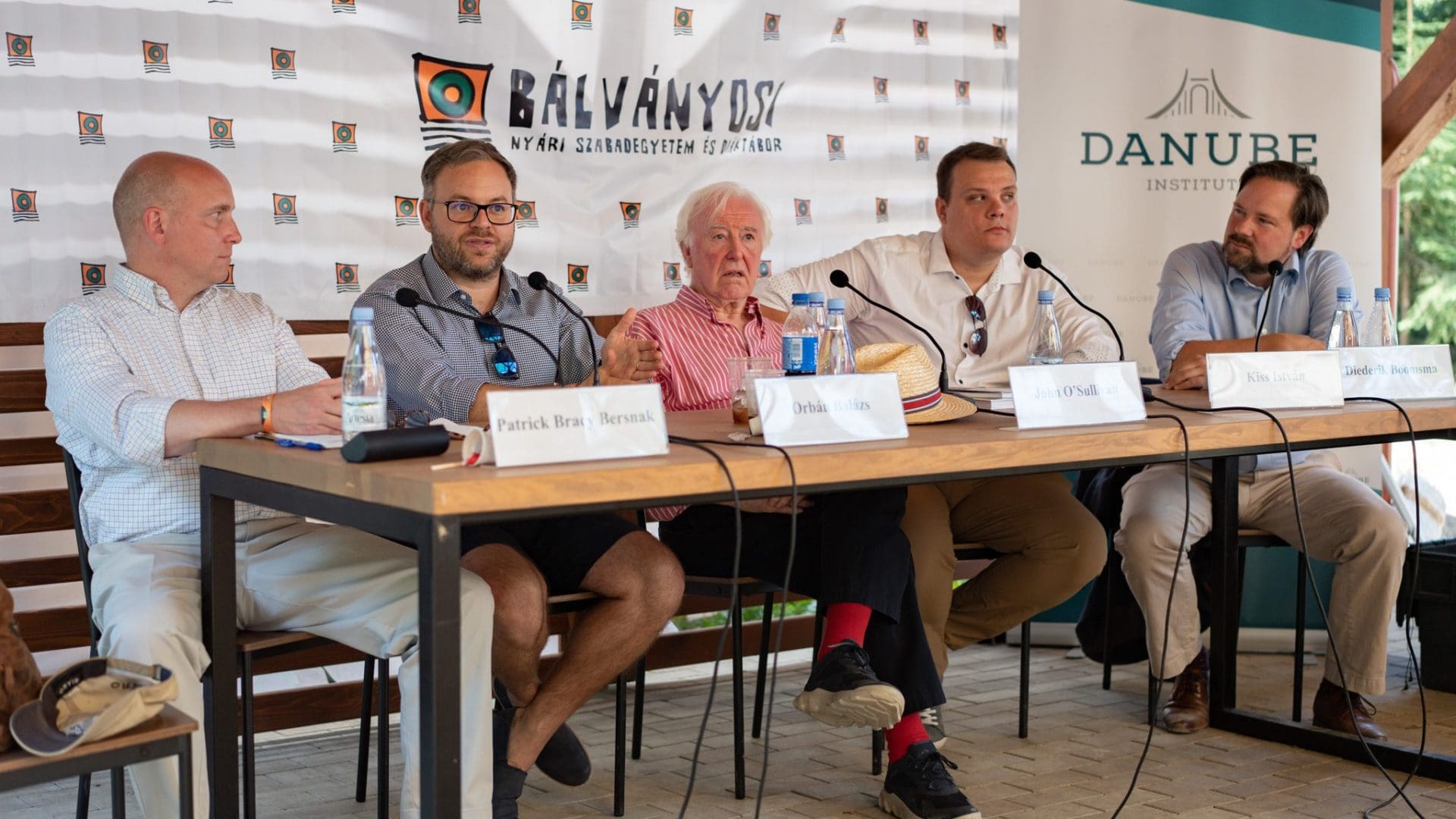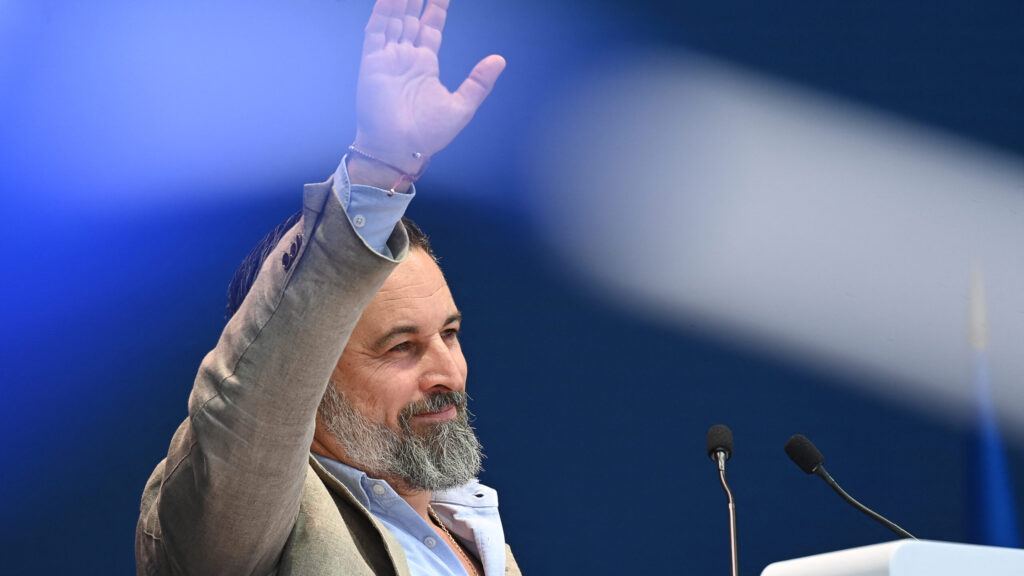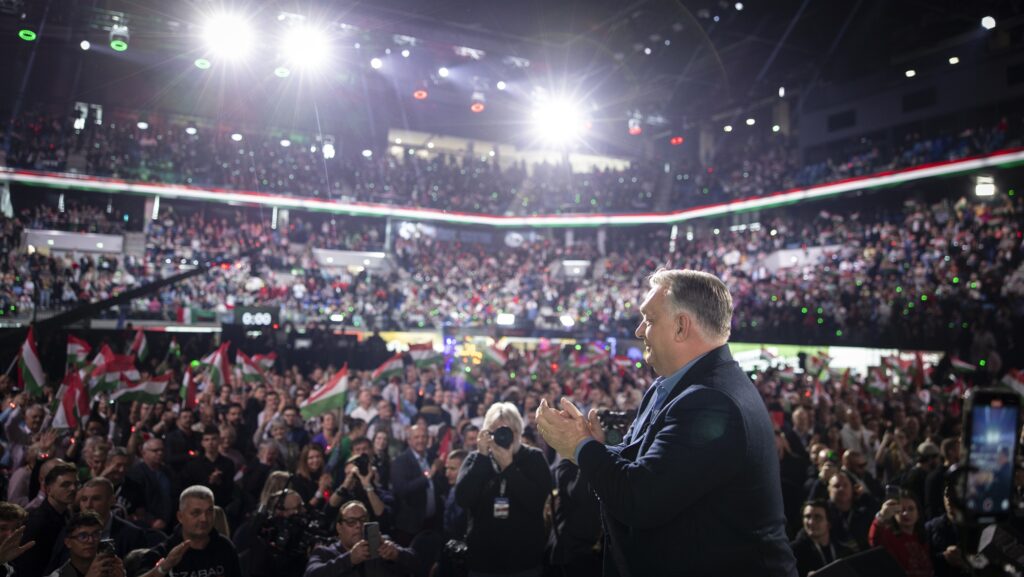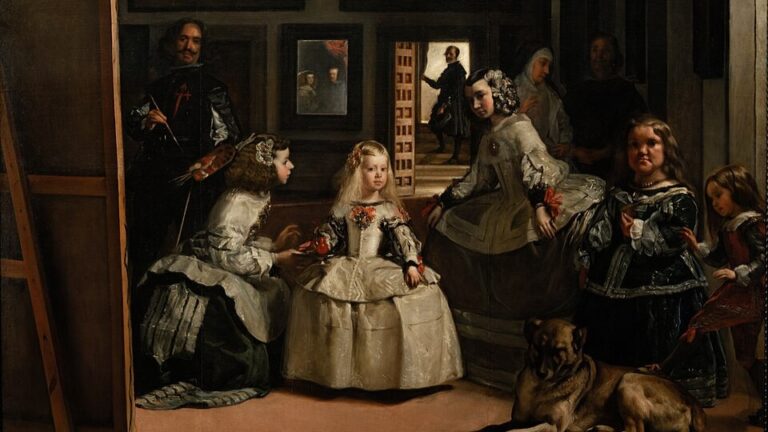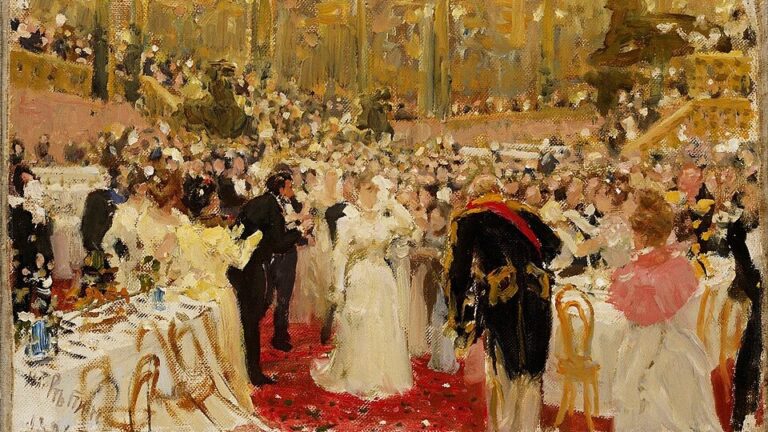The Bálványos Summer University and Student Camp–better known as Tusványos is a now legendary music festival in the heart of Transylvania, which also provides a yearly opportunity for leaders, lawmakers, experts and just about anyone to meet and discuss politics in the most informal manner. The festival’s history dates back to the Romanian regime change some thirty years ago, after which Hungarian students in both countries wanted to discuss their future under democracy. Many of those original attendees have become government officials over time, including Prime Minister Viktor Orbán, but are still coming back every year. Even though it is located in Romania, the site is among the most important places for Hungarian conservatism, since this is where the Fidesz government unofficially sets the next year’s agenda, while sending a powerful message of support to the diaspora communities. This year, one of the most captivating panels, perhaps, was titled New Conservatism in the 21st Century, and precisely because conservatism is not something that is easily defined, it becomes increasingly important to do so from time to time in our rapidly changing world. The panel was moderated by István Kiss, executive director of the Danube Institute, and his guests included various policy experts from around the West to clarify conservativism’s most pressing theoretical conundrums.
What Is Conservatism Anyway?
The opening questions to all panelists were simple: is there a “new” conservative current in the West today, and if so, how can we define it? Political science professor Patrick Bracy Bersnak of the US-based Christendom College started out answering by setting up the basis for the whole panel when he said ‘The future of conservatism must inevitably come from the past’. He then explained that conservatism is necessarily related to a certain sense of piety towards nation, family and God – the triad of pillars all past and future branches of it were and must continue be based on. In fact, Scruton’s oikophilia (the love for one’s homeland) can and should be extended to all three of these in his understanding, even so because its antithesis, oikophobia–from which the Western left currently suffers, according to Bersnak–does not only manifest itself in the hatred or contempt for one’s nation, but for traditional family ties and religiosity as well. The interwoven nature of these pillars mean that in its essence, conservatism is a widely interpreted responsibility we owe to the generations that came before us (by acknowledging their efforts that let our societies prosper) and the ones that will come after us, by making sure they can inherit the structures, values and principles handed down to us.
Abstract ideology rarely produces anything viable
John O’Sullivan CBE, President of Danube Institute and former political adviser to Margaret Thatcher, picked up the thread by presenting the same idea of continuity throughout time from a slightly different angle. According to him, conservatism should be nothing short of the celebration of successful models that gave us democratic, liberal societies and all of their benefits. Of course, he added, there are geographical derivatives as well, that slightly differ from each other. British conservatism, or its reigning form called Thatcherism, has three distinct and equally important pillars: free market economy, patriotic nationalism and respect for one’s customs and traditions – all in perfect harmony. The importance of nationalism cannot be overstated, O’Sullivan believes, since many of the problems today come from the fact that Western governments turned their back on it in the wake of the destruction in the Second World War. The world today needs to return to classical internationalism – the one that supports nation-states that lend power to international organizations, but never surrender their sovereignty entirely – instead of the transnationalism we’re currently building, in which the individual states are at mercy of the institutions presiding over them, thus nation-states should be regarded as the building blocks on which all international cooperation should be based. On whether conservatism could or should adapt to our changing realities, O’Sullivan answered with a fitting quote from Benjamin Disraeli: ‘Change is constant; and the great question is, not whether you still resist change which is inevitable, but whether that change shall be carried out in deference to the manners, the customs, the laws and the traditions of a people, or in deference to abstract principles and arbitrary and general doctrines.’ Abstract ideology rarely produces anything viable in the long run, whereas the traditional models that gave us the benefits of free societies and have been tested by the storms of time can hardly fail us if we stay true to them, O’Sullivan nailed down.
The Hungarian perspective was presented by Balázs Orbán, the political director of the prime minister, who also turned to Scruton for a definition: ‘Conservatism is more an instinct than an idea’. Contrary to the core tenets of the progressive left, which are all ideological in their very essence, conservatism is best described with feelings, said Orbán. It is a set of emotions towards one’s homeland, and an instinctive knowledge about the best interests of the nation, accompanied by an intrinsic desire to protect it. History has taught Hungarians more than one painful lesson, but all had the same baseline: sovereignty is the key to ensuring the nation’s survival and continuity. From this perspective, even some traditionally leftist social policies – such as utility or fuel price subsidies – are perfectly in line with the core principle, because they serve the best interest of the people. Orbán highlighted that conservative policy-making requires pragmatic thinking, especially in Central Europe; the interests, goals and tools must be set and chosen in careful subordination to each other.

PHOTO: FACEBOOK
The State of Conservatism Across the West
Diederik Boomsma, leader of the Dutch CDA shared his insights on how the Netherlands, one of the most conservative countries in Western Europe, has become the most progressive. There is a reason why the Dutch can afford to subscribe to progressive ideas in such numbers: they have deeply entrenched traditional bourgeois values, which established their work ethic, material prosperity and community-enforced social norms. For example, it is easy to legalize certain drugs, when there is a strong sense of anti-escapism in society, just as it is easy to have highly developed social policies when there aren’t many poor around. Therefore, paradoxically, it was conservative values that enabled the Netherlands to turn into the progressive stronghold it is today. And the process started with a seemingly innocent post-war political consensus, warned Boomsma, in which conservatives agreed to hand over control of most of the cultural, media and educational institutions to the left while retaining free market economy, not realizing that in decades they would lose control of all of them, due to the massive changes in society. Conservatives therefore must learn again how to participate in the culture war, otherwise they will cease to exist in the long run.
In the United States, conservatism is more vigorous compared to Western Europe, Bersnak suggested, and there is a reason for that. Firstly, US Republicans have successfully held onto their strong religious background, which makes it easier to retain political values during generational changes as well. Secondly, they have a sizeable institutional and intellectual background (manifested largely in media and think-tank circles), and thirdly, the great policy and legal successes (such as the recent repealing of Roe v. Wade) that can still happen overseas give conservatism new energy to keep on fighting the rising tides.
In Britain, as O’Sullivan noted, there has been a growing ideological rift between conservative politicians and their constituencies, meaning that the average Tory MP is much closer to the left than their right-wing voters. The CBE believes this is due to a number of factors, such as widespread neglect of religiosity among the political class or the constant apologizing for the historical crimes of our ancestors, even though the voters clearly reject this behavior. But the ultimate reason behind the rift is that conservative MPs commonly come from upper-middle-class families, and have been exposed to leftist ideas during their time at universities to the point where they are no longer in touch with the realities on the ground. The solution, as Brexit showed us, is uncompromising voter pressure, that forced Tories, for instance, to start to adopt their voters’ position at last. With Boris Johnson’s departure, the Conservatives will most likely pick someone to replace him as prime minister from among the most conservatives. The strongest contender, Rishi Sunak, is of ethnic minority background, yet O’Sullivan, for one, would welcome his premiership, since minority politicians can express patriotic nationalism without the self-restrains of shame or having to apologize all the time, something that British conservatism really needs right now.
The Elephant in the Room: Orbán’s ‘illiberal democracy’
Tusványos is where Hungarian PM Viktor Orbán made his famous speech in 2014 about the need to transform the country into an ‘illiberal’ democracy. The speech left politicians and experts across the West puzzled, and pundits have been using it ever since to prove Orbán’s alleged dictatorship over the country. So of course, the question of what he really meant, how it should be interpreted and whether such a concept can be consistent with conservatism could not be avoided by the panelists, and the lion’s share of the work was naturally done by Balázs Orbán.
Democracy should have the right to exist outside the confines of the mainstream progressive left
He explained that instead of its classic 19th-century meaning, the term ‘illiberalism’ in the Orbáninan sense means anti-progressivism, and has been chosen because it is illustrative of our age better. Up until the mid-20th century, the term ‘liberal’ was fairly neutral and could be associated with both sides of the political spectrum. Later, however, progressives gradually hijacked it and now it is no longer being used to describe conservatism, the force whose core tenets include the basic principles of freedom. To be a liberal now means to be leftist, to reject conservative values and embrace extreme progressivism, and any political structure which doesn’t is portrayed as inherently anti-democratic. This is the false narrative that Prime Minister Orbán challenged in 2014, saying that democracy should have the right to exist outside the confines of the mainstream progressive left. Besides, Balázs Orbán said, politics is all about survival; it is constant competition between nations and civilizations for primacy in world affairs. We can have pretty ideologies, he remarked, but the facts are clear: the West is declining, while other powers are emerging, and their example shows us that success is not necessarily dependent on being a liberal democracy – China, Russia or India are quite different from each other and the West, but they are undoubtedly doing considerably better than twenty-thirty years ago. In Orbán’s view, the next century will be about ruthless competition between major civilizations, most of which will not be liberal democracies in the term’s modern sense. Now in 2022, the West is approaching a breaking point, and if we continue to try to follow the ‘business-as-usual’ tactic, we’ll inevitably fail. We’ll need to adapt and phase out the institutional problems that arose from our ideological differences. ‘If liberal democracy makes it impossible to have an honest discussion, then liberal democracy is not the answer to this crisis’, summarized Orbán.

PHOTO: FACEBOOK
The others in the panel largely agreed with his position, in principle at least. Some, for instance, found the wording of ‘illiberal democracy’ less fortunate, given the fact that it needs to be explained even after eight years. Yet, perhaps the theoretical background is less important than the policies themselves, as O’Sullivan suggested. From a practical point of view, he said, whether liberties arise because of philosophy or experimental tradition based on what benefits our societies in the long run does not matter much. The question is the same with all of our conservative institutions, are they a product of philosophy or custom? In Scruton’s view, custom should take precedence, and if one thing is certain, Hungarian conservatism is nothing but based on historical tradition.
Is Conservatism Inherently Christian?
Lastly, just a bit behind schedule, the panel discussed the role of religiosity in conservative politics. It is no secret that the great post-war social changes also brought about a dramatic decline in religiosity throughout the West, which in turn first transformed, then weakened the power of the grand old Christian democratic parties in Western Europe (quite recently, it brought about the electoral defeat of the German CDU), but, paradoxically, it also strengthened them in East Central Europe (mainly in Poland and Hungary), even though widespread secularism is not confined to just one region or the other. The question, therefore, of whether conservatism should be regarded as an inherently religious–or even Christian–political force inevitably arises.
For Balázs Orbán, the answer is quite simply yes. In Hungary, conservatism is inseparable from Christianity, because it is not (just) a question of religiosity, but a civilizational one. Statistically, Hungarians are just as secular as Western Europeans; very few of them attend church services regularly, and just slightly more believe in the existence of God. However, an overwhelming majority firmly believes that the duties of the state include the protection of our Christian heritage. Orbán explained that historically, Christianity has always been the biggest driving force in politics, as questions of sovereignty and survival of the nation were always linked to God’s will – and even before joining Christendom in 1001 AD, it was divine manifestations that gave Hungarians mission and purpose (as evidenced by the myth of the Wondrous Stag). Therefore, in Hungary ‘it’s not about individual faith, it’s about the civilizational heritage that gives us pride and energy to overcome future challenges’, he summarized.
‘It is better to be governed by a mythological stag than Angela Merkel’
But there is also an even more pragmatic, institutional argument in favour of keeping Christianity entwined with conservatism. According to O’Sullivan, all of our Western societies have been built on the Christian heritage, and therefore our civic morality is essentially religious at its core. Our – or rather, the political class’ – problem is that we don’t have any other framework of morality, so when politicians refuse to acknowledge the Christian roots of our culture, they are unable to provide anything to replace it. For now (and for the foreseeable future), ‘they have no moral alternative to keep societies stable’, he concluded. In turn, Mr. Boomsma added that any government is a framework of heritage organically developed through history, therefore it is indeed inherently Christian in the West, and must be preserved as such. The responsibility to do so, of course, primarily falls on Christian Democratic politicians, and sadly not all of them take the task seriously enough. Then, to end on a lightsome tone, he added that ‘It is, perhaps, better to be governed by a mythological stag than Angela Merkel.’
‘Some things are forever!’
In its entirety, the panel provided the audience with a civilized, engaging and quite fruitful discussion about our shared mythical beast called ‘conservatism’ – something that everybody knows exists, but is rather hard to define. Yet, I’d say with confidence that the panelists succeeded in hunting it down, and did so in quite an eloquent way. I would also welcome it if they created another Tusványos tradition in the process, one in which the beautiful Transylvanian landscape becomes home to an annual revisiting of the issue. Prime Minister Orbán uses the platform to informally present his programme each year, and that is a model that international conservatism could also benefit from. The motto of this year’s festival was ‘Some things are forever!’, and I feel that our job today is to make sure that conservatism–and subsequently our nations, liberties and heritage–are and will remain among those things.

